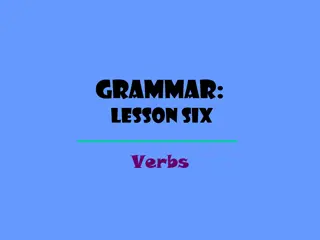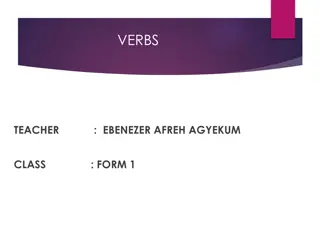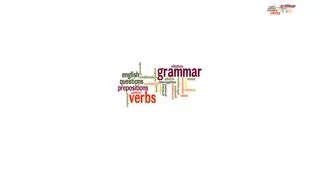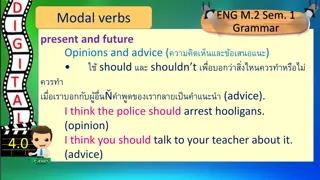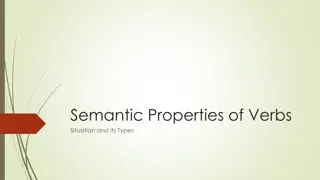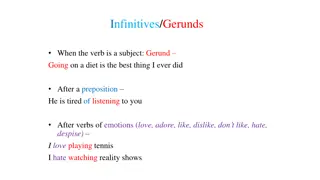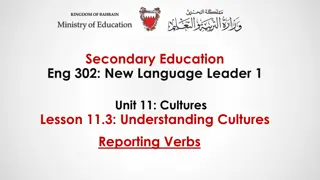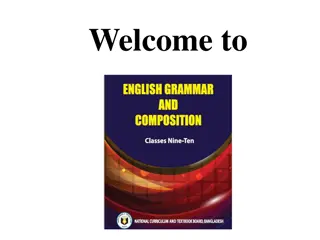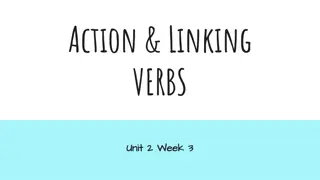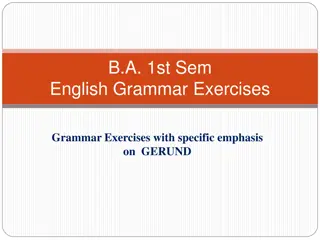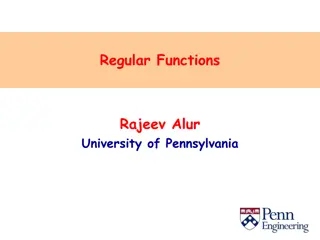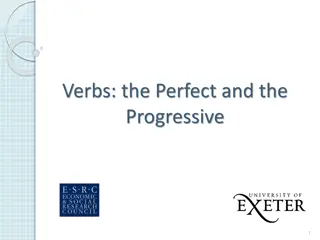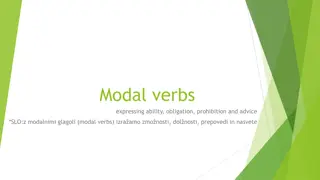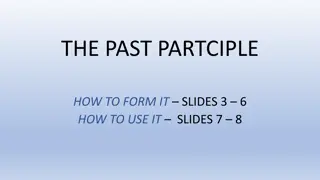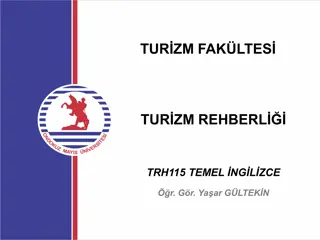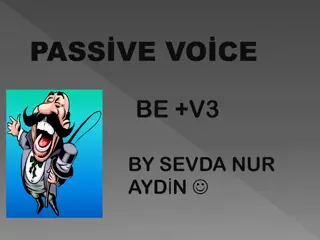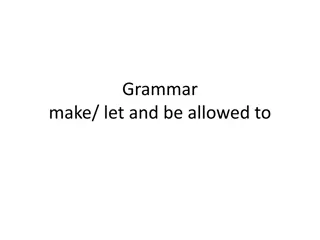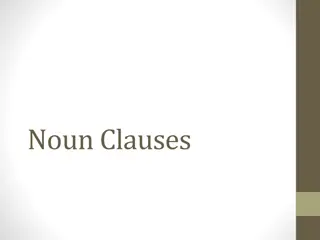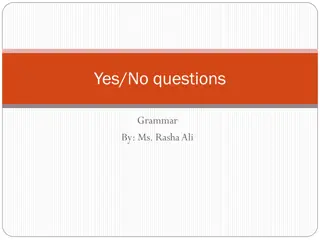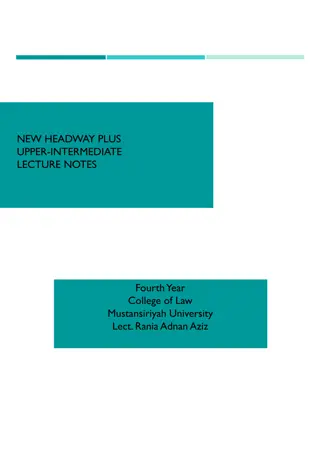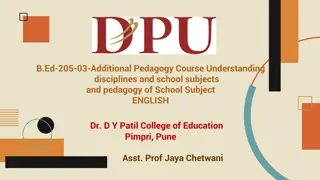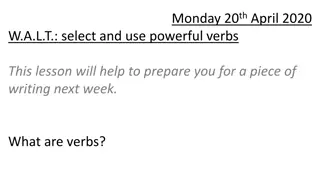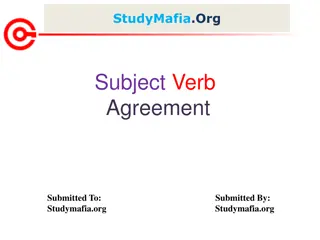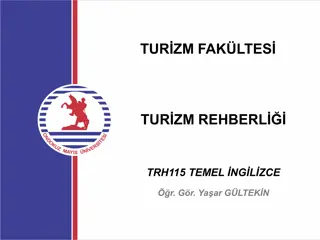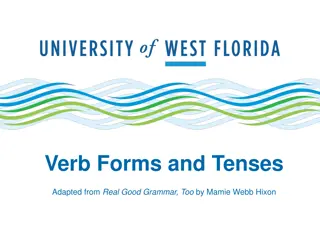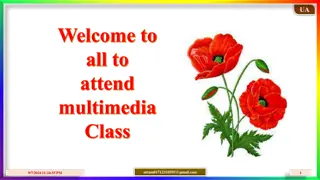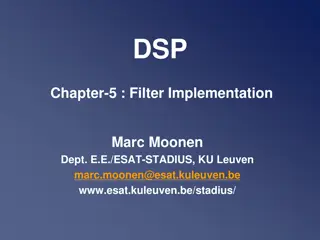Understanding Finite and Non-finite Verbs in English Grammar
Explore the concept of finite and non-finite verbs through examples and explanations. Learn to identify different types of verbs, their relationship with subjects and tenses, and how they function in sentences. Enhance your understanding of English grammar with practical insights and tips provided in this educational material.
Download Presentation

Please find below an Image/Link to download the presentation.
The content on the website is provided AS IS for your information and personal use only. It may not be sold, licensed, or shared on other websites without obtaining consent from the author. Download presentation by click this link. If you encounter any issues during the download, it is possible that the publisher has removed the file from their server.
E N D
Presentation Transcript
Introduction Md Assistant Teacher Chandanbari High School Monohardi Md Asraful Assistant Teacher Chandanbari S.A Pilot Girls High School Monohardi, , Narsingdi Asraful Kabir Kabir S.A Pilot Girls Narsingdi. . Class Subject: English 2 Grammar(Finite and non finite verb) Class- -IX Subject: English 2nd Grammar(Finite and non finite verb) IX- -X X nd Paper Paper
The baby is laughing. I saw the baby laughing. Laughing makes the baby cute. The baby likes to laugh.
Our Todays lesson is on Finite and Non-finite verb
Learning outcomes At the end of the lesson, we will be able to - define finite and non-finite verbs list the kinds of non-finite verbs identify finite and non-finite verbs in given sentences
The baby is laughing. Followed its subject. not followed anything/anyone I saw the baby laughing. Followed tense Followed past tense. Laughing made the baby cute. not followed anything/anyone not followed anything/anyone The baby likes to laugh. Followed its subject.
How many kind of verbs have we observed in the previous slide? Two Finite verb Non-finite verb The verb that follows its subject & tense is a finite verb. The verb that does not follow its subject & tense is a non- finite verb.
Tips Finite verb always stays with subject / after subject but non-finite verb may stay before subject /after verb/at the end of the sentence. If there is no am, is ,are, was ,were before a verb with ing is a non-finite verb. There is no am, is ,are, was ,were here. The baby came to its mother running. Non-finite verb Going to the field, they began playing.
Find out the finite and non-finite verbs from the passage below. Mother s love is divine. To have blessing of Allah there is no other alternative to respect her. Loving mother, one can achieve heaven. Allah will bless us for caring our mothers.
Talib likes to play football. Playing well, they won the prize. Follow Playing football is my hobby.
What are the classifications of Non-finite verb? Three Participle Infinitive Gerund Acts as verb & adjective Acts as verb & noun Acts as Verb & noun Verbal Adjective Verbal Noun Verbal Noun
Notice attentively He goes to market to buy foods. Acts as verb & noun To perform such a task is really difficult. Acts as verb & noun Main focus to buy to perform to + verb Infinitive Note : Infinitive is found in answer to What to do.
Function of infinitives I asked him to wait outside. Used as the complement of the verb asked . Used as the subject of the sentence To accomplish such a task is amazing.
Used as verb & adjective I see a flying bird in the sky. A flying bird makes the sky more attractive. Used as verb & adjective flying verb +ing Main focus Participle A participle is a verb that works of both verb and adjective, thus it is a verbal adjective. Note : Participle is found in answer to How.
More example Look at the burning candle. Participle Verb + adjective There are three forms of the participle: Present participle (verb + ing) Taking the book, he left the library. Past participle (verb +d / ed) Give me the promisedmoney, the piper said. Perfect participle (have + ing = having) Having closed the door, he went out.
Used as subject (Acts as verb & noun) Painting is my best hobby. I like painting most. Used as object (Acts as verb & noun) painting verb +ing Main focus Gerund A Gerund is a verb that works of both verb and noun, thus it is a verbal noun. Note : Gerund is found in answer to What.
Pair work Write down the finite, infinitives, present, past, perfect participles and gerunds from the passage. What is morality? Morality is a divine quality which is seen in human beings. It always leads a man to choose the right way. Conscience is a related part of morality. But greed influences a man doing the wrong. Performing duty, telling the truth, respecting others are also related to morality. By following religion we can achieve these qualities. Having achieved religious teaching we can reach our desired goal.
Home Work Write a paragraph at home in ten sentences about the video you will watch. The sentences will include finite, infinitives, all participles and gerund. The paragraph may be like ------- In the video we enjoyed playing football. At the beginning of the match, we saw the players coming to the field running one after another. They were getting them ready to play. There was a referee standing at the middle of the field



